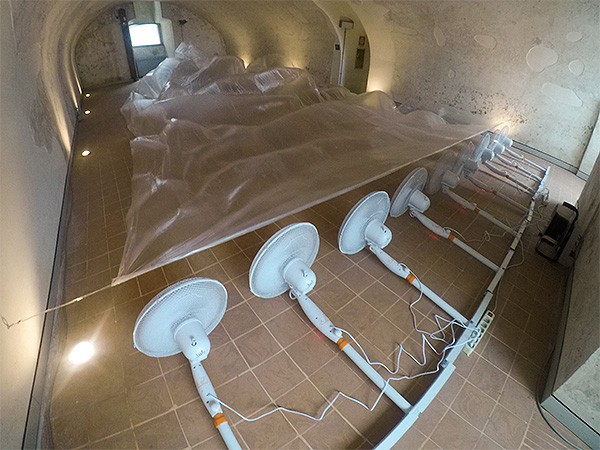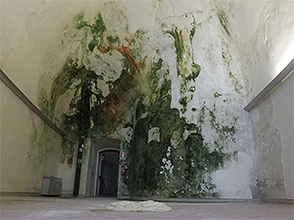castello priamar, savona
palazzo del commissario
autopoiesis (from greek αὐτo- (auto-), meaning „self“, and ποίησις (poiesis), meaning „creation, production“) refers to a closed system capable of creating itself. the term was introduced in 1972 by chilean biologists humberto maturana and francisco varela to define to the self-maintaining chemistry of living cells. since then the concept has been also applied to the fields of systems theory and sociology.
autopoiesis means self production, creation.
the concept of autopoiesis has long surpassed the realm of biology. it has been used in areas so diverse as sociology, psychotherapy, management, anthropology, organizational culture, and many others. this circumstance transformed it in a very important and useful instrument for the investigation of reality.
in autopoiesis the various components may be randomly fed in and the end result may not be known until it exists.
autopoiesis is useful in the making of art. think, for example, of a painting as a living organism in which the introduction of parts suggests the introduction of other parts. the end product, while not pre-visualized, still becomes a tangible thing of its own.
autopoiesis is „self making“, a characteristic of all living systems. the interactivity engages the viewer/participant who in turn, effects the system’s evolution and emergence. this creates a system evolution as well as an overall group sculptural aesthetic. autopoiesis presents an interactive environment, which is immersive, detailed and able to evolve in real time by utilizing feedback and interaction from audience/participant members.
in the theory, society is defined as the nexus of communication, and
the system can reproduces communication by communication. the mind of human is
also considered as an autopoietic system, which is the nexus of consciousness, and
the system can reproduces consciousness by consciousness.
ecology is not treated as a “system” but just as phenomena on the side of “environment” of social system. in order to get in the harmony with economic growth and environmental protection, we have to look into the relationship between ecosystem and social system.
from the academic viewpoint, current problem is that the methods, concepts
and theories are separated in each disciplines.
therefore the trans-disciplinary framework to understand the fundamental relationship between nature and society is required.




